NIL
Travis Johansen says USD 'exceeded any expectations' with talented transfer portal class
VERMILLION, S.D. — Long before spring practice began and the chaos of the transfer portal during this period was in full swing, University of South Dakota head football coach Travis Johansen knew he had work to do. After losing numerous seniors to graduation last year, the freshly minted head coach knew he wanted to focus […]


VERMILLION, S.D. — Long before spring practice began and the chaos of the transfer portal during this period was in full swing, University of South Dakota head football coach Travis Johansen knew he had work to do.
After losing numerous seniors to graduation last year, the freshly minted head coach knew he wanted to focus more on the spring portal period to reload the roster at the beginning of the year. However, following many departures during the spring, the task became that much more difficult.
ADVERTISEMENT
“A small venture turned into a bigger one,” Johansen said.
There were multiple factors contributing to what kind of players USD wanted to bring in. Obviously, talent, scheme and culture fit are always important, but Johansen also said the NCAA House Settlement played a role as well. Under the settlement, college football rosters would be cut to 105 players, with many schools cutting 20 or more to hit that number. That saw a wave of entries into the portal, including players that Johansen said they recruited in the past.
USD also wanted to bring in a crop of players with multiple years of eligibility remaining. Many of the Coyotes’ additions have two, three and some with still a full four years left in college football. That was a major focus for Johansen and the coaching staff.
“We still want to stay true to who we are, and that’s a developmental program,” Johansen said. “Seeing the potential of players, getting it out of them and being able to keep them in our system for four years, we feel like we get the best out of guys when we do that.”
Two major needs for the Coyotes were the offensive and defensive trenches. With only a single returning starter on the offensive and currently none on the defensive line, USD went to work.
Even before the spring, the Coyotes added two linemen from the University of Iowa in Caden Crawford and Jeff Bowie. USD then went out and added former Washington State lineman Jackson Cowgill — brother of current USD tight end Mason Cowgill — who will have four years remaining.
Along with him, Nathan Laperi made eight appearances for North Texas during his true freshman season, collecting two tackles. Finally, 6-foot-7, 240-pound Calen Presser joins after two seasons at Arkansas State, where he didn’t see any game action, but Johansen said his frame and style of play will mesh well with USD’s system.
ADVERTISEMENT
“To be able to find somebody and people talented enough to keep our aspirations online isn’t an easy venture,” Johansen said. “The way we went about it, we couldn’t be happier.”
The offensive line was another challenge, especially with the competitive market for depth in the offensive trenches. USD made headlines during the spring when Bryce Henderson, Joe Cotton and Jordan Larsen all departed for new opportunities. All three of them landed at Power Four programs and will likely be competing for starting nods.
USD added one lineman before the spring, former Merrimack College center Brandon Smith, designed to be a direct replacement for Joey Lombard. Despite those other departures, Johansen said that after the spring, the staff felt like the returning crop of talent was going to hold down the fort. Even so, USD made three additions that will boost the competitiveness in the room.
“We felt confident that we could go do it without the additions, but when we kind of got into the recruiting of it, and we were able to get (Wyatt) Lawson from FIU, Brock Woolf from Kansas State and Almarion Crim from UT-Chattanooga, those guys are all game-ready, talented players,” Johansen said. “We’ll be deeper than we ever have been with game experience and talent.”
There was also the issue of the defensive secondary. The Coyotes lost mainstays of the secondary, including safeties Dennis Shorter and Josiah Ganues. Along with those two, cornerback Mike Reid also graduated and all-conference cornerback Shahid Barros entered the portal. That left numerous gaps to fill.
Going down the list, the Coyotes added many defensive backs to the secondary, including standouts such as former Michigan State cornerback DJ Kennard, former Washington State safety Ashton Jett Paine, former Iowa Western cornerback Jaylen Boehm-Peterson and Lamar University safety DeJuan Lewis, among others.
One of the consistent factors, especially among the corners, is size and length. Kennard, Boehm-Peterson and Jett Paine all stand at least 6-foot-2. That lengthy defensive back type worked well with the 6-foot-2 Reid last season, who also earned an undrafted free agent contract with the Carolina Panthers largely because of his size.
ADVERTISEMENT

Nathan Swaffar / Mitchell Republic
While not specifically looking for length, Johansen said those bigger players give USD a lot of flexibility in the secondary, especially in the cornerback room.
“We’ve added guys with length that can be DBs, and maybe not just corners,” Johansen said. “Guys that can play in certain positions on third down and we don’t feel like they’re a liability. Anytime you get a DB, having positional flexibility helps; get your best players on the field. … That group of people, we feel confident. We felt confident in our top four leaving spring ball, but really looking at being eight, nine, 10 deep.”
USD has also brought in multiple offensive playmakers. That includes notable players in tight ends Dallas Holmes and Jackson Accuardi, running backs Jaylen Anderson and Reid Watkins, athletic dual-quarterback Ty Robinson and a few more additions that will be announced in the next few weeks.
Although it will be difficult to get a full judgment on who works out until they hit the field, Johansen said some of the additions that had the benefit of going through spring ball already appear to be well on their way to making major contributions next season.

Nathan Swaffar / Mitchell Republic
“From the guys that have been here, DeJuan Lewis on defense will certainly help us. Caden Crawford on defense will certainly be impactful for us,” Johansen said. “Feel very confident in Brandon Smith’s spring and what he did at center. The guys that were here with us in the spring that we were able to see, we feel confident in those guys.”
While the class isn’t fully complete yet, Johansen labeled this transfer period as a major success and provided more than he could have hoped for, both talent-wise and with how long the process took.
“Our staff did an incredible job, probably exceeded any expectations I certainly had of the way we would get the class together,” Johansen said. “I thought we would be working well into June and maybe get last takes late before (fall) camp started. But that’s certainly not going to be the case and we’re going to have a really productive summer because of it. I think we’ll all see it paying dividends in the fall.”
NIL
French league President accuses the NCAA of ‘looting’ talent with massive NIL deals
NIL deals are running rampant in the world of college sports. As it turns out, the interest is expanding overseas as universities target international players to come to their schools and play for their respective teams. Duke’s Dame Sarr and North Carolina’s Luka Bogavac are a couple of notable international players who are heading to […]
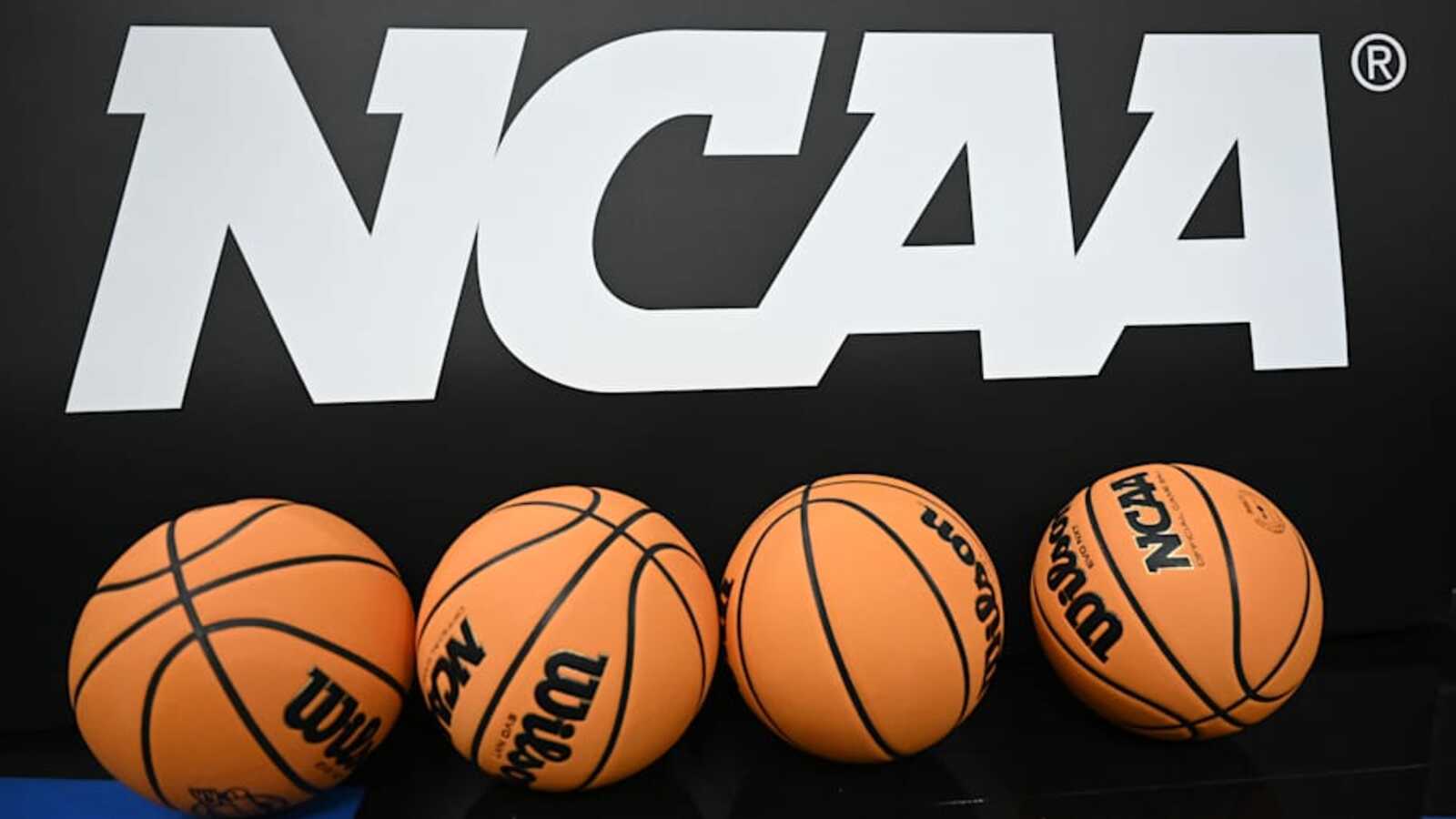
NIL deals are running rampant in the world of college sports.
As it turns out, the interest is expanding overseas as universities target international players to come to their schools and play for their respective teams.
Duke’s Dame Sarr and North Carolina’s Luka Bogavac are a couple of notable international players who are heading to the mainland to play at some of the top programs in college basketball.
As a result, Philippe Ausseur, the President of France’s National Basketball League, is not happy with universities making a run at international stars, per French reporter Yann Ohnana.
“Given the number of players approached, about fifteen of whom have signed up, we can call it looting. The colleges are casting their net wide, even in Pro B, and are dispossessing us of a certain number of our key players without us being able to react,” Ausseur said.
He also mentioned that the league has been aware of this trend, but the biggest shock was the massive amount in the reported deals.
“What took us by surprise were the amounts. We were expecting big contracts worth $350,000, but it’s $2 million…We were expecting half a dozen players to be approached, but it’s more than triple that…We’ve heard of agents trying to get clubs to sign certificates to demonstrate that their players are still amateurs. The situation remains unclear,” Ausseur said.
Ilias Kamardine is one French hoops star who decided to go and play for Ole Miss despite being a star in France.
With NIL expanding every year, it will become more and more difficult for other leagues to keep their players, especially with the cash flow they can receive and the exposure of playing at the college level.
NIL
Congressman Michael Baumgartner on Middle East, Spokane protests, and NIL legislation
SPOKANE, WASH- Congressman Michael Baumgartner sat down for a lengthy conversation on current events, his new legislation, and Spokane protests, a major focal point was the Middle East. Congressman Baumgartner started the conversation about college athletics with support for Washington State University’s new president. He is the Chair of the Congressional College Sports Caucus, and […]


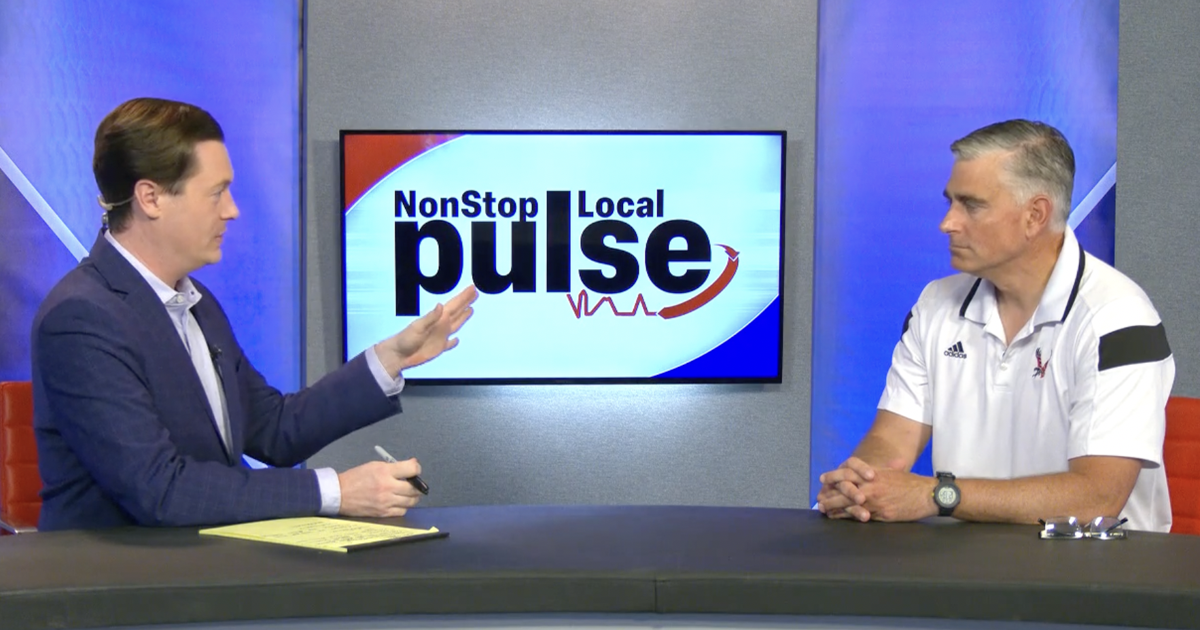
SPOKANE, WASH- Congressman Michael Baumgartner sat down for a lengthy conversation on current events, his new legislation, and Spokane protests, a major focal point was the Middle East.
Congressman Baumgartner started the conversation about college athletics with support for Washington State University’s new president.
He is the Chair of the Congressional College Sports Caucus, and has frustration on the final settlement agreement that has been reached in the House v. NCAA litigation.
He’s worried about WSU, EWU and GU and how NIL will not only impact the schools but how the tourism economy around college sports will be affected locally.
The congressman who has major experience in the region is steadfast in his support of Israel, adding that they have been a good ally to the U.S. and was at the White House when the first rockets were launched.
He feels the Presidents “bold leadership,” is the right display and he has been impressed with the president’s leadership.
In response to the potential use of bunker bombs he says the best outcome would be a negotiation ending with a Iran giving up their nuclear weapons and allowing inspections.
On the typic of Gaza, and to the people who feel Israel is a “bad actor,” the congressman said we need to be driven by America’s interest, and that’s supporting a reliable ally in the Middle East which is Israel.
The congressman felt it was “unfortunate that people were trying to block ICE,” and pointed out that the state of Washington is a sanctuary state which she feels makes the state unsafe.
He was supportive of the police response.
In direct response to Ben Stuckert the congressman felt blocking a federal officials bus was wrong, in follow up he explained his office was working with the two individuals who were taken into custody on their case.
Stuckert told KHQ that his goal was not to get arrested, but the congressman had heard that was not the case.
We have reached out to Stuckert for his response.
The Congressman called a domestic terrorism and said it should be denounced.
NIL
Steelers NFL draft prospect LaNorris Sellers passes up huge NIL deal
The top priority of the Pittsburgh Steelers scouting staff this college football season is to sort out what is already shaping up to be an elite quarterback class for the 2026 NFL draft. Thanks to the ridiculous nature of NIL money, the NFL now has another aspect of players to track and that’s their loyalty […]
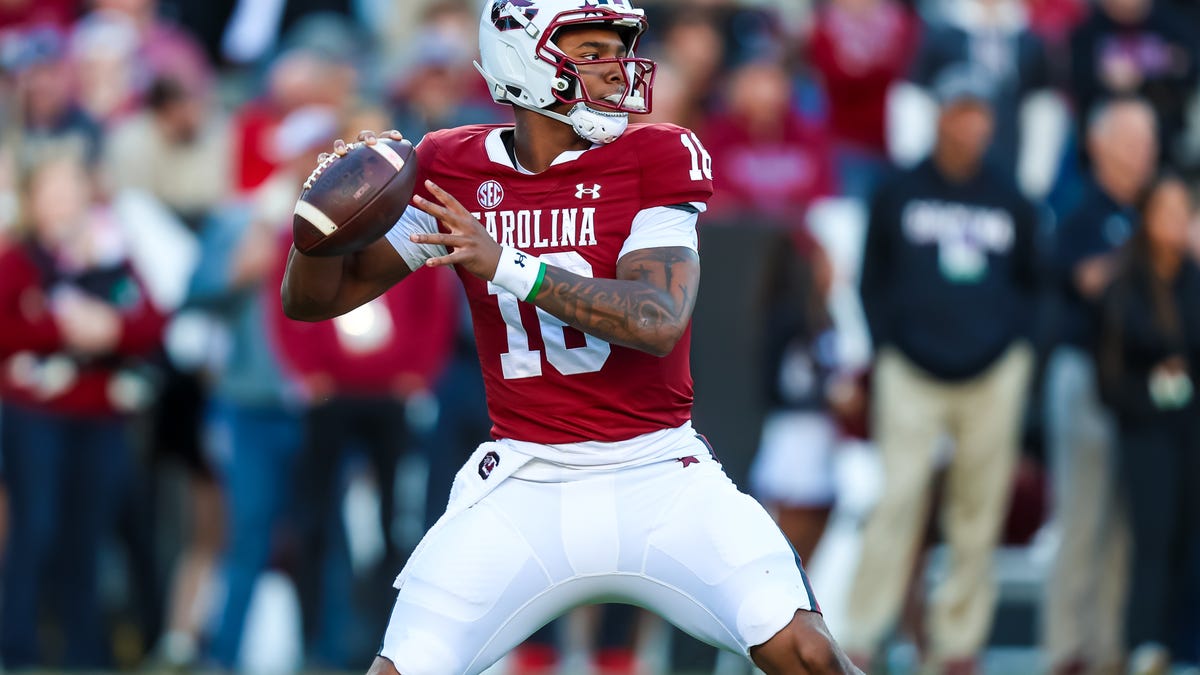
The top priority of the Pittsburgh Steelers scouting staff this college football season is to sort out what is already shaping up to be an elite quarterback class for the 2026 NFL draft. Thanks to the ridiculous nature of NIL money, the NFL now has another aspect of players to track and that’s their loyalty to their team as opposed to making fast money in college football.
One of the top quarterback prospects in the upcoming draft is LaNorris Sellers out of South Carolina. News came out about Sellers this week and thanks to some intervention by his dad, Sellers chose to pass up $8 million over two years in NIL money to stay. According to Sellers’ dad, there were multiple schools bidding for his services, but he showed maturity and loyalty by staying, which is a huge green flag for an NFL team.
From a football standpoint, Sellers is poised for a huge breakout season. His athleticism and mobility are already off the charts and as the season progressed, we saw his pocket presence and processing speed improve drastically down the stretch. Sellers and Clemson’s Cade Klubnik are my top two options for the Steelers and this move by Sellers just helps his case.
NIL
James Franklin reveals potential change in who will run college football
As college athletics adjusts to the new status quo in the aftermath of the House Settlement, Penn State head coach James Franklin believes there is a new “entity” that will run college football. The Nittany Lions are coming off a record-breaking season under Franklin, who is entering his 12th season at the helm. Penn State […]
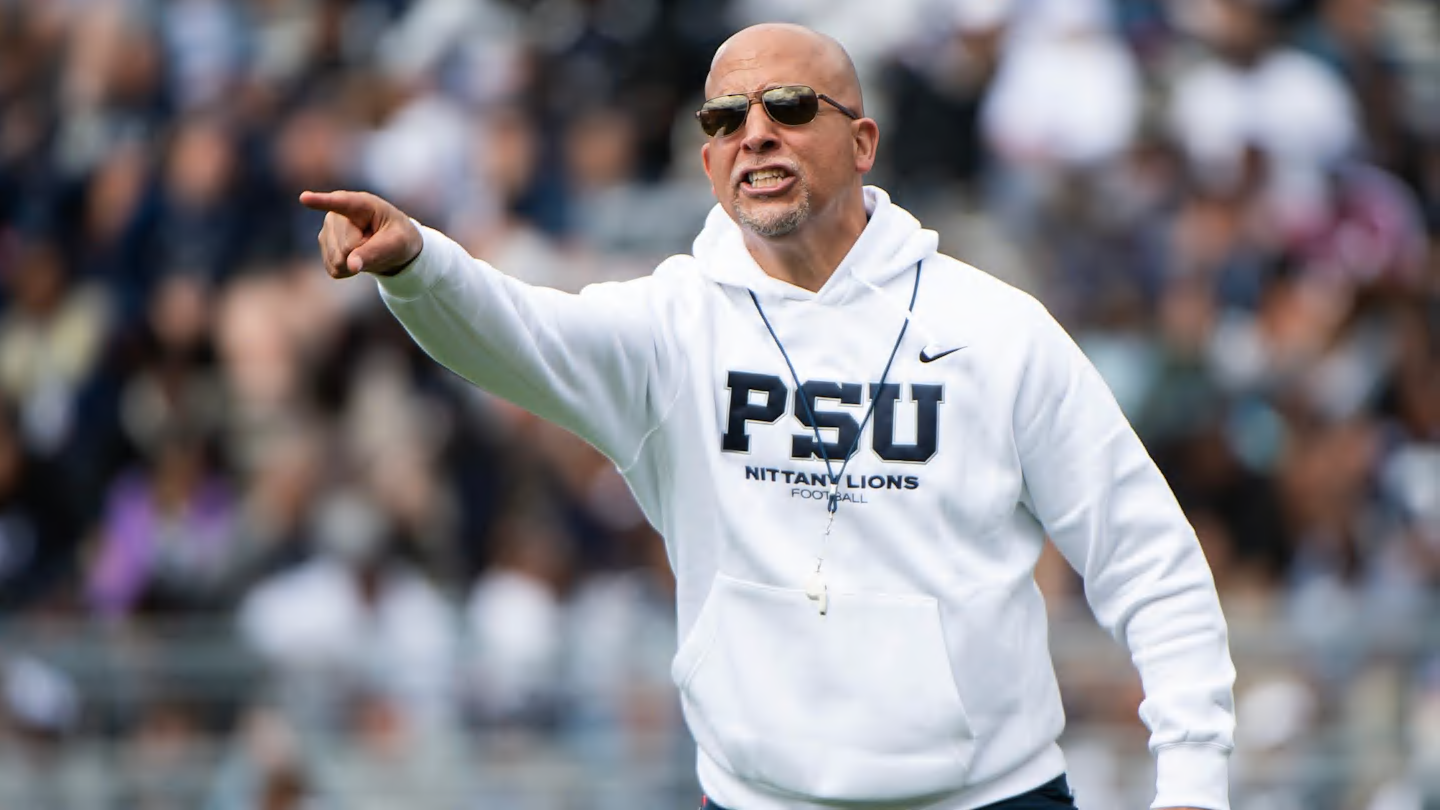
As college athletics adjusts to the new status quo in the aftermath of the House Settlement, Penn State head coach James Franklin believes there is a new “entity” that will run college football.
The Nittany Lions are coming off a record-breaking season under Franklin, who is entering his 12th season at the helm.
Penn State had never won as many as 13 games in a single-season, something that was accomplished in 2024, along with the school’s first College Football Playoff appearance.
Competitiveness within the NIL space has been a key part in Penn State’s rise to national contention.
Behind Big Ten rivals Ohio State and Michigan, the Nittany Lions are projected to spend $13.7 million in NIL funds to field its roster in 2025, the third-most in the conference and 11th nationally, per NCAA estimates.
The House Settlement brings a new process to NIL workings beginning July 1, as the new revenue sharing model will allow participating schools to allocate up to $20.5 million to athletes this year.
Additionally, the College Sports Commission’s NIL Go clearinghouse – ran by Deloitte – will be responsible for processing all NIL deals worth over $600.
Franklin believes that the new entity will extend to more than the NIL space and ultimately run college football.
“The way I kind of understand it is this is revenue sharing rules and NIL rules kind of are all under this umbrella,” Franklin said Wednesday on “The Triple Option.” “But I would also say that I really think it’s pretty much going to be everything. I think football is going to be run by this entity. I don’t want to use the term that we’re breaking away. But I think football is going to be run by this entity.”
“I think at the end of the day, everything is going to fall under this umbrella,” Franklin continued. “Because the reality is, right now, it’s going to be the Big Ten commissioner, the SEC commissioner, and this entity. People are going to get upset when I say that, but they’re going to be the ones running it and, obviously, other commissioners from other conferences are going to have a voice as well.”
Only time will tell if the new NIL parameters will be effective as planned. There are potential hurdles, such as state laws – like a bill recently introduced in Michigan – being passed to limit the commission’s authority.
NIL
NIL and direct pay
The world of college sports is undergoing the biggest transformation in decades. Name, Image, and Likeness (NIL) deals have opened the door for student-athletes to earn money through personal branding. Now, with the House v. NCAA settlement approved in June 2025, schools themselves will soon be allowed to directly pay athletes, with up to $20.5 […]


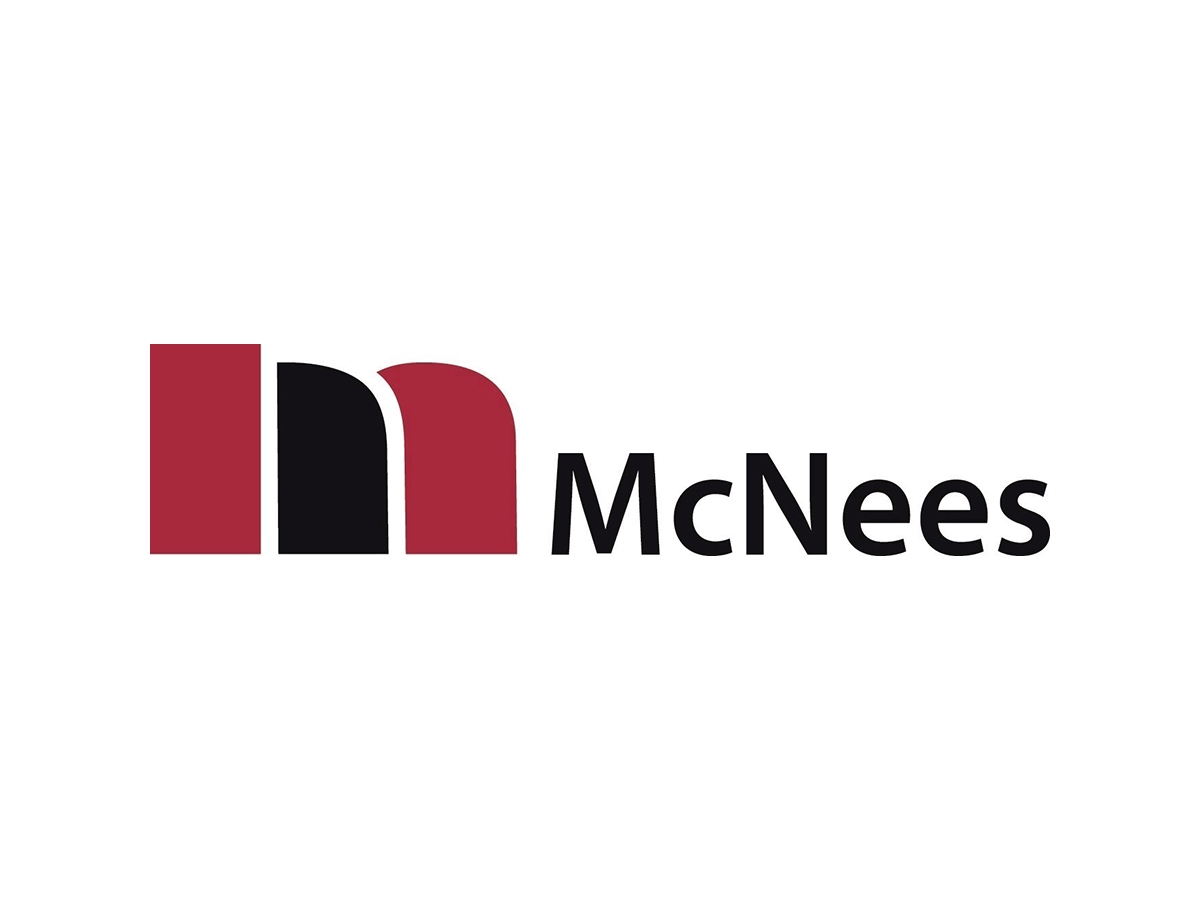
The world of college sports is undergoing the biggest transformation in decades. Name, Image, and Likeness (NIL) deals have opened the door for student-athletes to earn money through personal branding. Now, with the House v. NCAA settlement approved in June 2025, schools themselves will soon be allowed to directly pay athletes, with up to $20.5 million per school available each year. This means NIL is just one part of a broader, regulated compensation landscape.
Whether you are just starting your collegiate journey or already building your brand, here are six essential tips to help you navigate today’s NIL landscape and prepare for what comes next.
1. Understand what NIL is — and what it isn’t
NIL deals allow athletes to earn compensation through third-party activities such as endorsements, social media promotions, and public appearances. However, NIL is not the same as being paid to play. Athletes cannot receive compensation from a school based on athletic performance or for choosing a specific program. Instead, NIL deals must reflect fair market value for services tied to an athlete’s name, image, or likeness.
Beginning in July 2025, a new revenue stream will become available — direct payments from your school under the House settlement. These payments are separate from NIL and will be regulated under a different framework.
Tips:
- New athletes: Focus on building your personal brand and understanding the value of your name, image, and likeness.
- Seasoned athletes: Reevaluate your deals to ensure they are still aligned with your current market value.
- Everyone: Understand that NIL and school-based pay are different, and each is governed by specific rules and oversight.
2. Be aware of endorsement restrictions
Not all NIL deals are permitted. State laws, NCAA rules, and school policies limit the industries athletes can partner with. Common restrictions prohibit NIL partnerships involving:
- Alcohol, tobacco, or adult entertainment
- Casinos, gambling, and sports betting
- Controlled substances and firearms
Your school may also limit NIL deals that conflict with its existing partnerships, such as exclusive apparel providers.
Tips:
- New athletes: Learn the rules that apply at your school and in your state before pursuing NIL opportunities.
- Seasoned athletes: Stay up to date with any new regulations or restrictions, especially as oversight transitions to the new College Sports Commission.
- Everyone: Always disclose NIL deals to your school and confirm compliance before signing.
3. Look beyond big sports for opportunities
Football and men’s basketball may dominate NIL headlines, but opportunities exist in every collegiate sport. Gymnastics, volleyball, swimming, and other sports have produced high-earning athletes, often due to their social media presence and consistent branding.
Tip:
- Focus on building your presence and engaging with your audience. NIL rewards athletes who are authentic, creative, and consistent across platforms, regardless of their sport.
4. Prioritize professionalism
Athletic skills may get you noticed, but professionalism will determine your long-term success. Sponsors care about how you present yourself online, in public, and media. Poor decisions off the field can quickly harm your reputation and cost you current or future deals.
Tips:
- New athletes: Look to established professionals in your sport and adopt habits that reflect maturity and responsibility.
- Experienced athletes: Protect your brand by staying consistent and professional across every aspect of your NIL activities.
- Everyone: Treat your NIL presence as a business because it is.
5. Secure professional representation
NIL agreements, tax implications, and school policies are complex. Without the right advisors, athletes can end up in risky or unfair contracts or miss important obligations that affect eligibility or earnings. Lawyers and sports agents can help draft fair contracts, ensure compliance with regulations, and protect your interests.
Tips:
- New athletes: Talk to an experienced professional before entering into any NIL deal.
- Seasoned athletes: Review existing contracts and structures with trusted advisors to ensure you are protected.
- Everyone: Think of legal and financial support as a smart investment in your future.
6. Know the new rules: Direct pay is coming
Starting July 1, 2025, schools will be allowed to compensate athletes directly. Under the House settlement, up to $20.5 million per school per year will be available for athlete pay. This represents a major shift in how college athletics are structured.
Key changes include:
- Roster limits will replace the traditional scholarship model with caps on team sizes (for example, football capped at 105 players) and potentially affect scholarship availability. Talk with your coach or compliance office to understand how these changes impact your spot.
- NIL deals over $600 must be reported through a new national portal.
- A new oversight body, the College Sports Commission, will handle compliance and enforcement rather than the NCAA.
Tips:
- New athletes: Ask your school how it plans to implement the changes and what it means for your compensation and roster spot.
- Seasoned athletes: Understand the difference between NIL and direct school pay so you can make informed decisions.
- Everyone: Keep an eye on developments in employment law and Title IX as legal challenges continue to shape the future. Legal challenges around athlete employment status and Title IX are ongoing, so staying informed is critical.
The final whistle: Preparing for NIL success
NIL has changed the game, but now it is only one piece of a larger picture. As schools prepare to compensate athletes directly and new oversight takes effect, the business of college sports is evolving rapidly. Success in this environment requires more than just talent; it demands knowledge, professionalism, and support from experienced advisors.
NIL
Buss family to sell Lakers at $10 billion valuation to Dodgers owner Mark Walter
By Joe Vardon, Mike Vorkunov, Fabian Ardaya and Andy McCullough The Buss family has agreed in principle to sell the Los Angeles Lakers, one of the most iconic sporting brands in the world, to financier Mark Walter in a deal that values the team at a global record $10 billion, league sources told The Athletic. […]
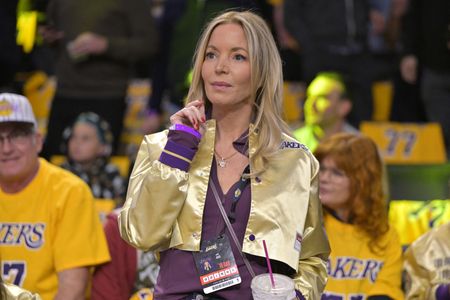


By Joe Vardon, Mike Vorkunov, Fabian Ardaya and Andy McCullough
The Buss family has agreed in principle to sell the Los Angeles Lakers, one of the most iconic sporting brands in the world, to financier Mark Walter in a deal that values the team at a global record $10 billion, league sources told The Athletic.
Advertisement
“Mark Walter is entering into an agreement to acquire additional interests in the NBA’s Los Angeles Lakers, of which he has been a stakeholder since 2021,” a spokesperson for Walter said in a statement to The Athletic.
The sale, which is not yet finalized, could eventually value the team at $12 billion, according to one source with knowledge of the negotiations, who spoke on the condition of anonymity because they were not authorized to discuss the transaction. That would be far more than the $6.1 billion valuation for the Boston Celtics when they were sold in March.
Even at the lower number, the sale would be the largest for any sports team, and it will affect not only how competitive the Lakers can be in the NBA, but also impact the other storied Los Angeles sports team for whom Walter is the controlling owner, the Dodgers.
Jeanie Buss, 63, will remain governor after the sale is complete, a league source said. Her father, Jerry Buss, purchased the Lakers in 1979, and the following year the Lakers were NBA champions, the first of 10 titles they would win under his ownership. With stars like Kareem Abdul-Jabbar and Magic Johnson, the “Showtime” Lakers of the 1980s helped reinvigorate the league’s popularity and made the franchise one of the most popular in sports.
Jeanie Buss has been team governor and controlling owner since 2017, four years after her father died and a legal dispute among his children was settled, allowing her to take control.
The pending sale was first reported by ESPN.
Walter, 65, is chief executive of Guggenheim Partners, a global financial services firm with more than $325 billion in assets. He led the group that bought the Dodgers in 2012 for $2 billion. The franchise has won two World Series titles since and operated as one of the best organizations in professional sports.
Advertisement
Walter first took a stake in the Lakers in 2021 when he and Todd Boehly bought a 27 percent share of the franchise, then valued at about $5 billion, including a right of first negotiation, according to one source with knowledge of the deal.
Buss bought the Lakers for about $68 million from Jack Kent Cooke, the former owner, in a complex deal that also gave him the Los Angeles Kings and the Forum. The price of the Lakers has gone up drastically since then.
The Lakers have won 17 NBA championships — second only to the Boston Celtics — and have at multiple points employed the “face” of the league, or a player so important professionally and culturally that he transcends any box score. From Wilt Chamberlain to Abdul-Jabbar to Johnson to Shaquille O’Neal to Kobe Bryant to LeBron James, the Lakers added to that impressive list by trading for perennial MVP candidate Luka Dončić last February.
One of those legends, Johnson, who is part of the group with Walter that purchased the Dodgers, expressed his excitement about the Lakers sale.
“Laker fans should be (ecstatic),” Johnson posted to X. “A few things I can tell you about Mark — he is driven by winning, excellence, and doing everything the right way. AND he will put in the resources needed to win! I can understand why Jeanie sold the team to Mark Walter because they are just alike.”
James, who is 40 and has played 22 seasons, is said to be comfortable with the sale, though he is nearing the end of his career.
Dončić, meanwhile, is 26 and eligible for a $229 million contract extension. While paying multiple players a maximum salary has never been an issue for the Lakers, spending outside of the roster occasionally has been problematic for a team with such a strong brand.
The Buss family fortune was largely tied to the Lakers, whereas most owners in the NBA today made their money outside of the sport. The Lakers have, in the past, been more frugal when it comes to paying coaches, front-office executives, buying draft picks in the second round and other ancillary but important functions for running a world-class organization.
Advertisement
“I’m really excited — now the Lakers will be able to spend like they should spend,” said one league source with ties to the franchise.
Walter’s group, Guggenheim Baseball Management, bought the Dodgers for $2.15 billion in 2012 from owner Frank McCourt, who had driven the club into bankruptcy. Walter outbid a $2 billion offer from Steve Cohen, the future owner of the New York Mets, to secure the club. The group was fronted by Johnson, with former Atlanta Braves and Washington Nationals executive Stan Kasten designated as the team president. The Guggenheim investors included film producer Peter Guber and Boehly.
Walter sunk millions into rebuilding the team’s roster, improving its internal infrastructure and renovating Dodger Stadium. The club has not missed the postseason under his guidance, with championships in 2020 and 2024. Along the way, Walter added more sports assets to his portfolio. In 2014, he purchased a stake in the WNBA’s Los Angeles Sparks. He owns the Professional Women’s Hockey League and has begun investing in motorsports.
“Speaking from (the perspective of) a Dodger employee, he’s very competitive,” Dodgers manager Dave Roberts said. “He’s going to do everything he can to produce a championship-caliber team every single year and make sure the city feels proud of the Lakers and the legacy that they’ve already built with the Buss family.”
In 2021, Walter and Boehly added a stake in the Lakers. A year later, Walter joined a Boehly-led group, BlueCo, that overtook Chelsea F.C. The group also owns the French soccer club Strasbourg.
The Dodgers under Guggenheim’s management have seemingly taken their revenues to a different stratosphere with the acquisition of Japanese superstar Shohei Ohtani to a 10-year, $700 million deal in December 2023, dramatically shifting their business opportunities abroad as they have opened their last two seasons in South Korea and Japan. They committed approximately $1.4 billion in new salaries in the same offseason when they signed Ohtani, and backed that up with a substantial investment this past winter. Their payroll has remained among the game’s highest, with an expected investment of nearly half a billion dollars in the 2025 Dodgers alone between payroll and expected luxury tax payments.
“Our business is very healthy,” Dodgers president of baseball operations Andrew Friedman said this past November.
Advertisement
Ohtani signaled his desire to join the Dodgers was in part because of the ownership group’s investment and stability, attaching himself at the hip to Walter and Friedman through a “key man clause,” meaning that Ohtani could opt out of his deal if either left the organization. With Walter’s purchase of the Lakers, it appears he’s not leaving any time soon.
(Photo: Jevone Moore / Getty Images)
-
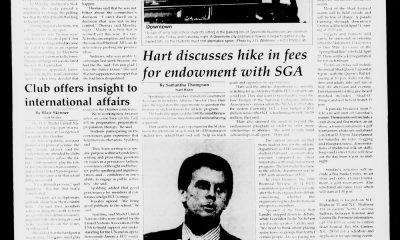
 High School Sports2 weeks ago
High School Sports2 weeks agoParents Speak Out As Trans Pitcher Throws Shutout In MN State Quarterfinals
-
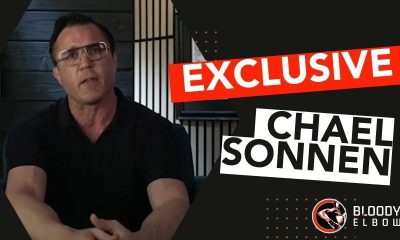
 Professional Sports2 weeks ago
Professional Sports2 weeks ago'I asked Anderson privately'… UFC legend retells secret sparring session between Jon Jones …
-
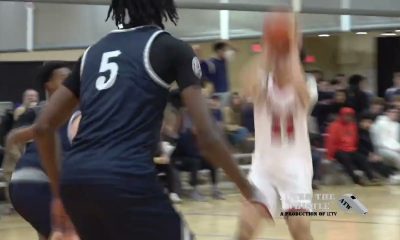
 College Sports3 weeks ago
College Sports3 weeks agoIU basketball recruiting
-

 Health2 weeks ago
Health2 weeks agoOregon track star wages legal battle against trans athlete policy after medal ceremony protest
-
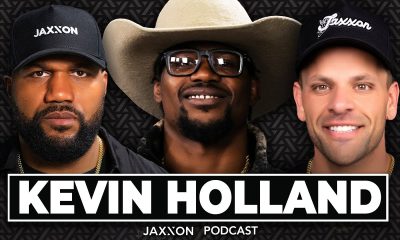
 Professional Sports2 weeks ago
Professional Sports2 weeks agoUFC 316 star storms out of Media Day when asked about bitter feud with Rampage Jackson
-
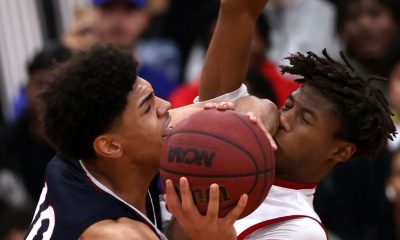
 High School Sports3 weeks ago
High School Sports3 weeks agoThe Arizona Daily Star's top high school athletes, coaches and moments of the 2024
-
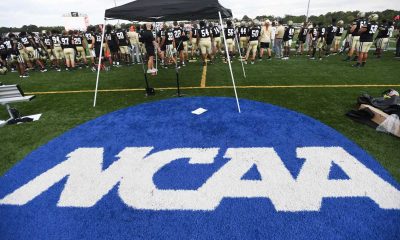
 NIL3 weeks ago
NIL3 weeks agoNCAA Sends Clear Message About Athlete Pay and Roster Limits
-
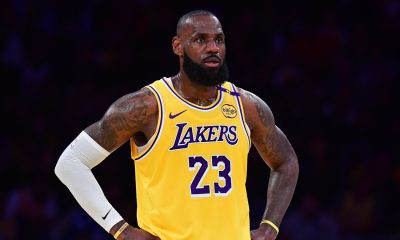
 Rec Sports2 weeks ago
Rec Sports2 weeks ago2x NBA All-Star Reacts to Viral LeBron James Statement
-

 NIL2 weeks ago
NIL2 weeks agoMen's college basketball Top 25 reset
-

 Social Media3 weeks ago
Social Media3 weeks agoControversial Athletics Gender Dispute Goes Viral After Riley Gaines Lashes Over Authorities

































